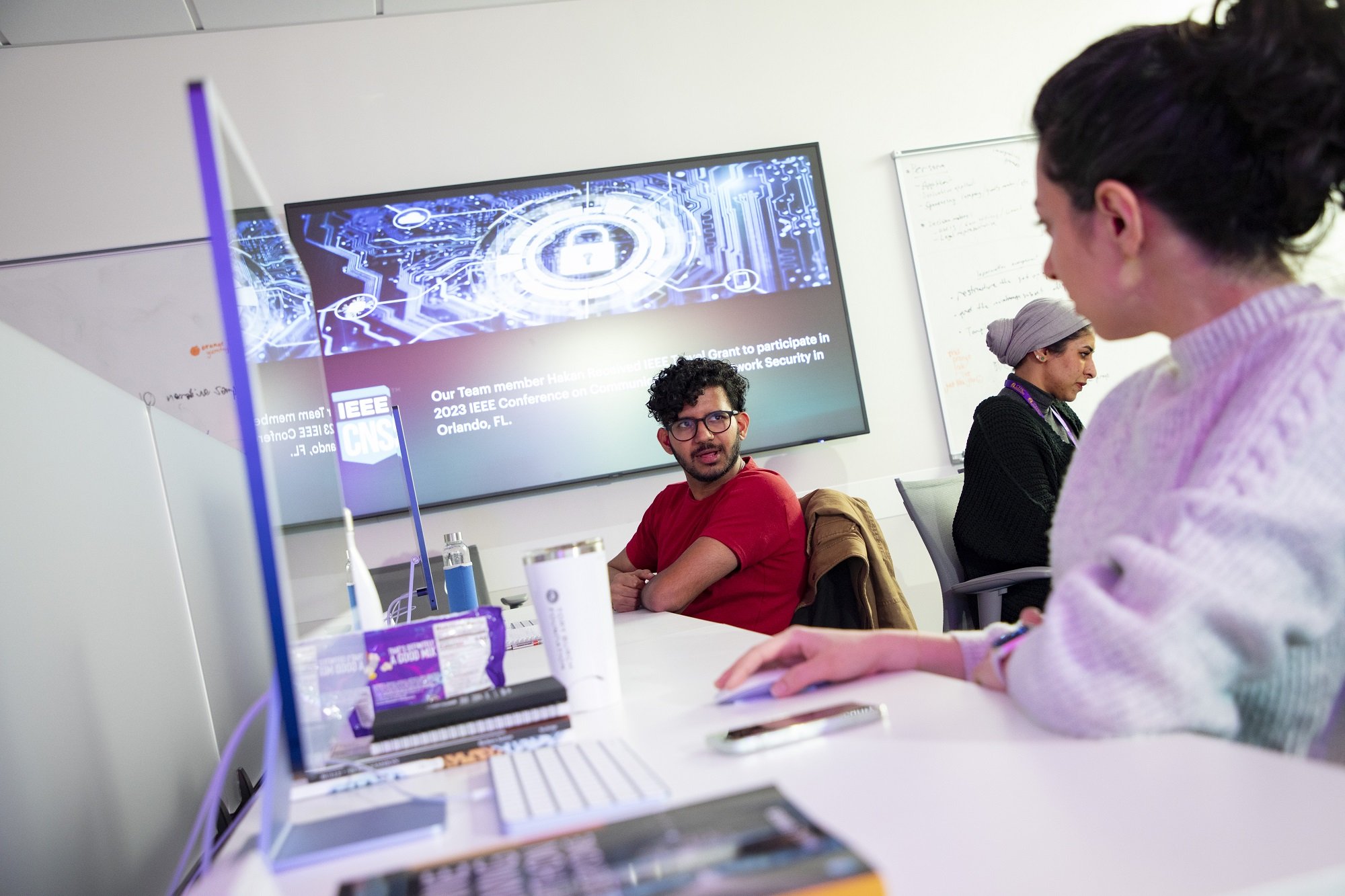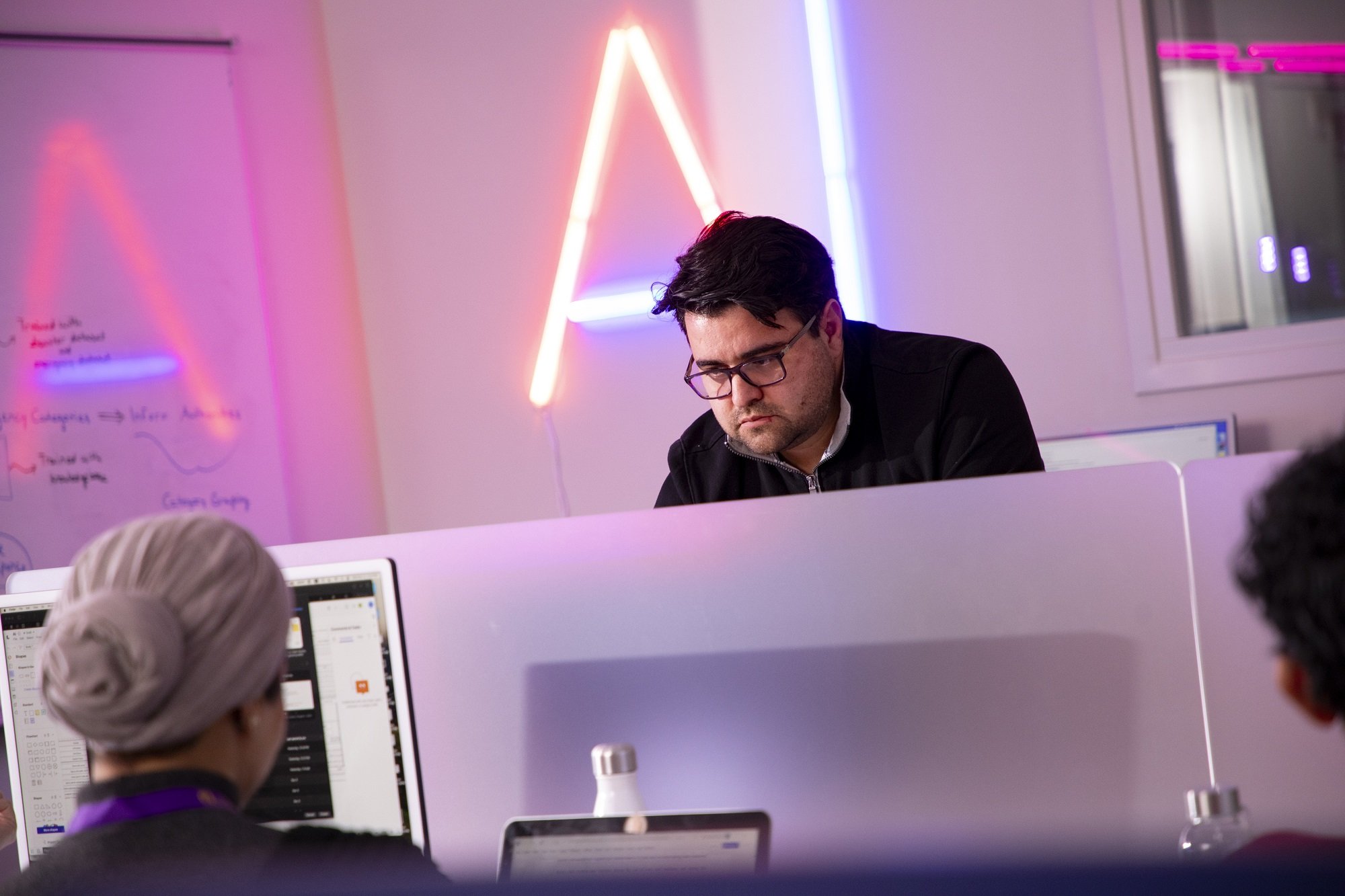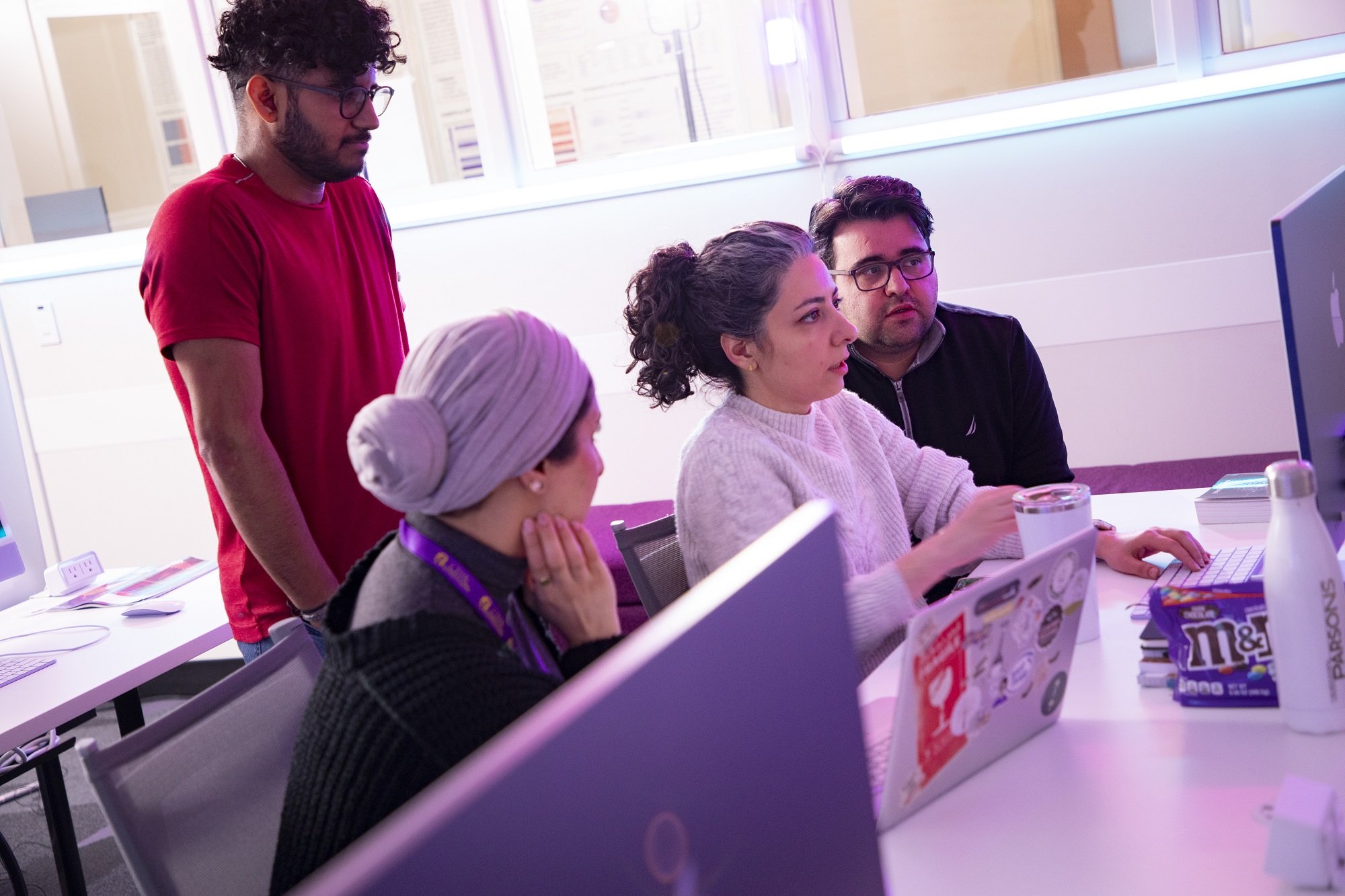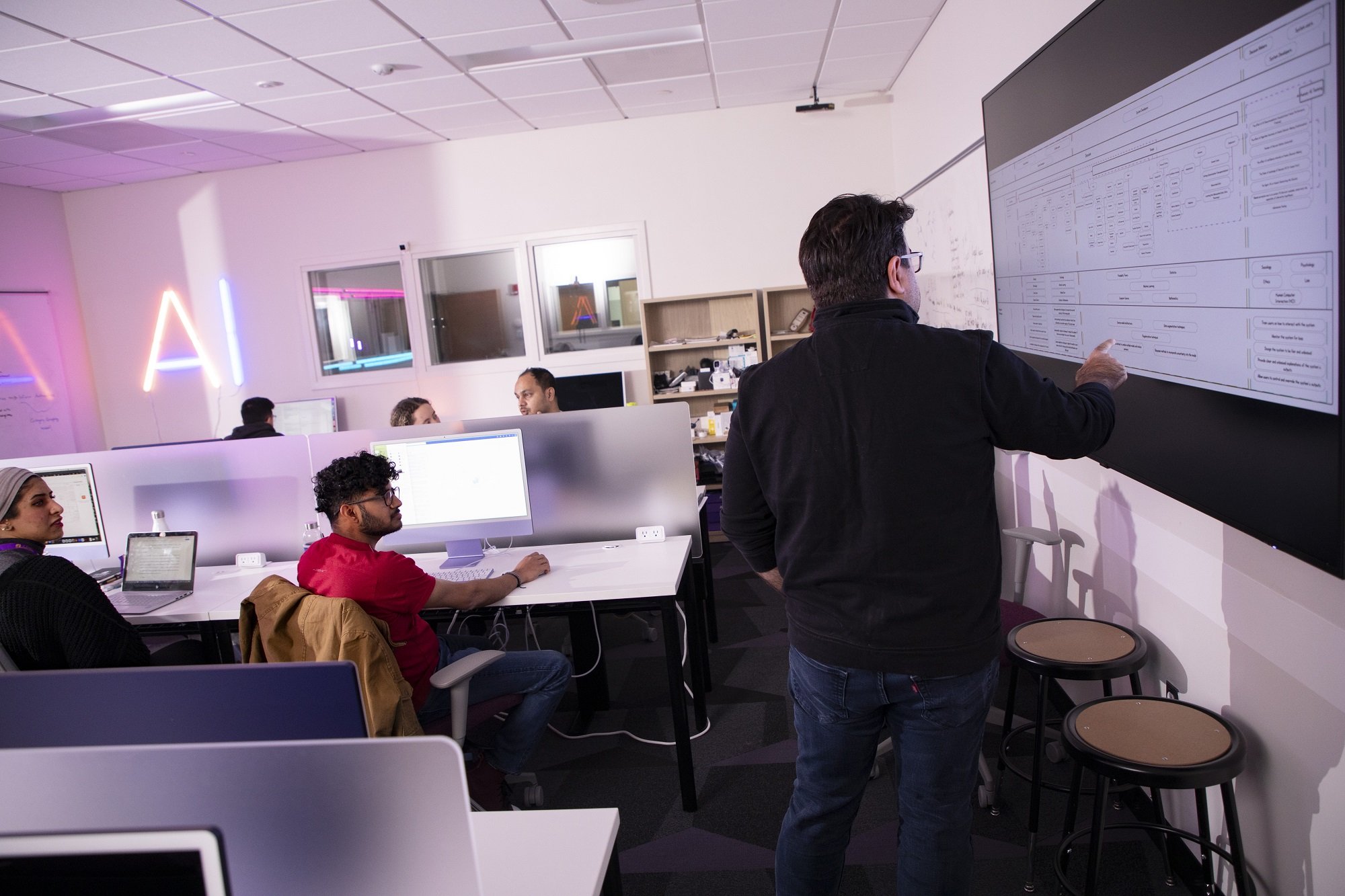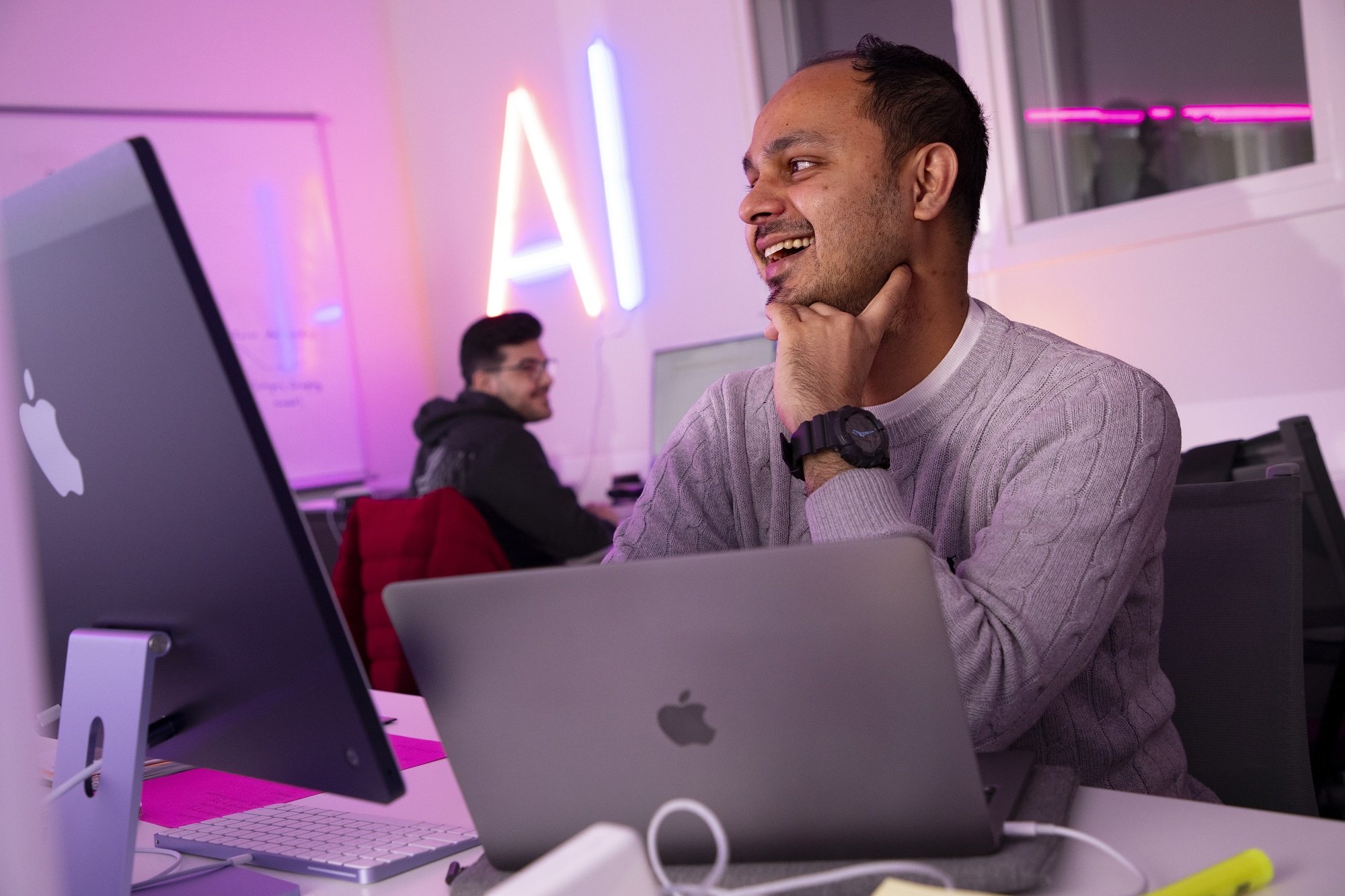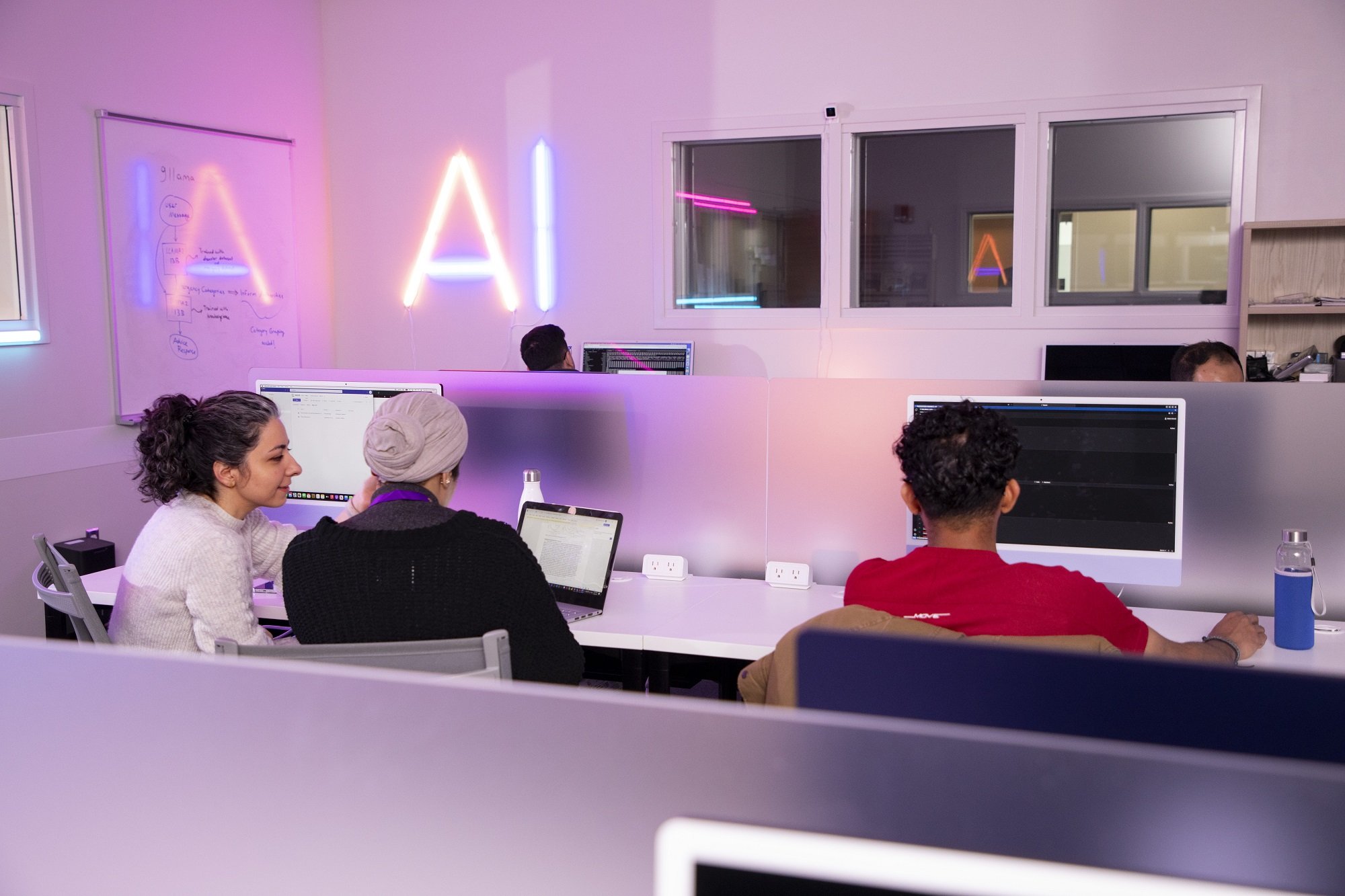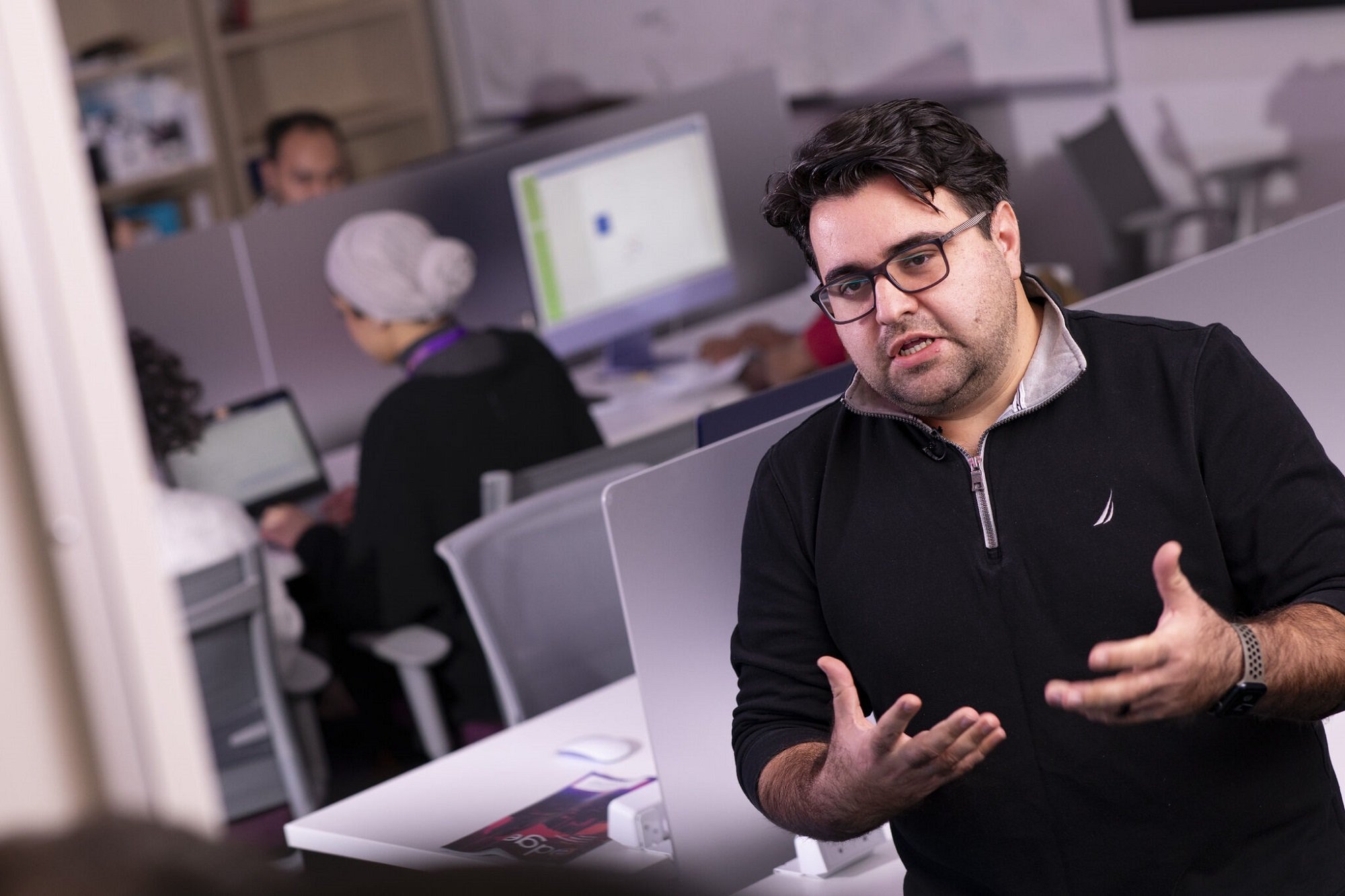An Inside Look at CEHC’s New Artificial Intelligence Laboratory
By Mike Nolan
ALBANY, N.Y. (Jan. 16, 2024) — Artificial intelligence technologies are still in the early stages of development, yet they are already transforming nearly every industry around the globe, from education and government to art and healthcare.
The technologies are also bringing forth a wave of new career opportunities. A study by McKinsey Global Institute estimates that as early as 2030, AI could contribute to the creation of 20 million to 50 million new jobs globally.
M. Abdullah Canbaz, an assistant professor in the Department of Information Sciences and Technology at UAlbany’s College of Emergency Preparedness, Homeland Security and Cybersecurity (CEHC), is dedicated to positioning his students as leaders in this digital revolution.
He recently launched the AI in Complex Systems Laboratory, a cutting-edge research facility on the second floor of the ETEC research and development complex that is dedicated to the study and advancement of AI within the context of complex systems and networks.
Canbaz welcomed his first cohort of undergraduate and graduate researchers to the lab in Spring 2023.
“Artificial Intelligence is a buzzword that has captivated global discourse for decades," Canbaz said. "In our state-of-the-art lab, we're exploring the systematic and strategic applications of AI across diverse sectors. Moreover, we're providing our students with hands-on experiences, empowering them to harness the potential of these emerging technologies.”
Advancing AI Technologies
Canbaz's research navigates the intersection of security, privacy in networking, network science and applied data science. He’s also the founder of Clever AI Technologies, a legal tech startup dedicated to developing AI-driven solutions for human rights practices.
Central to his lab's mission is using AI and machine learning technologies to help address real-world problems and societal challenges.
Radhakrishnan Venkatakrishnan, a second-year PhD student in information science, is a student researcher at the AI in Complex Systems Lab. He joined with an interest in researching natural language processing, a machine-learning technology that gives computers the ability to interpret, manipulate, and comprehend human language.
Venkatakrishnan is working on a project to analyze the capacity of an AI system to perceive, interpret and respond to human emotions, using social media responses to the Turkey and Syria earthquakes in February 2023 as a case study.
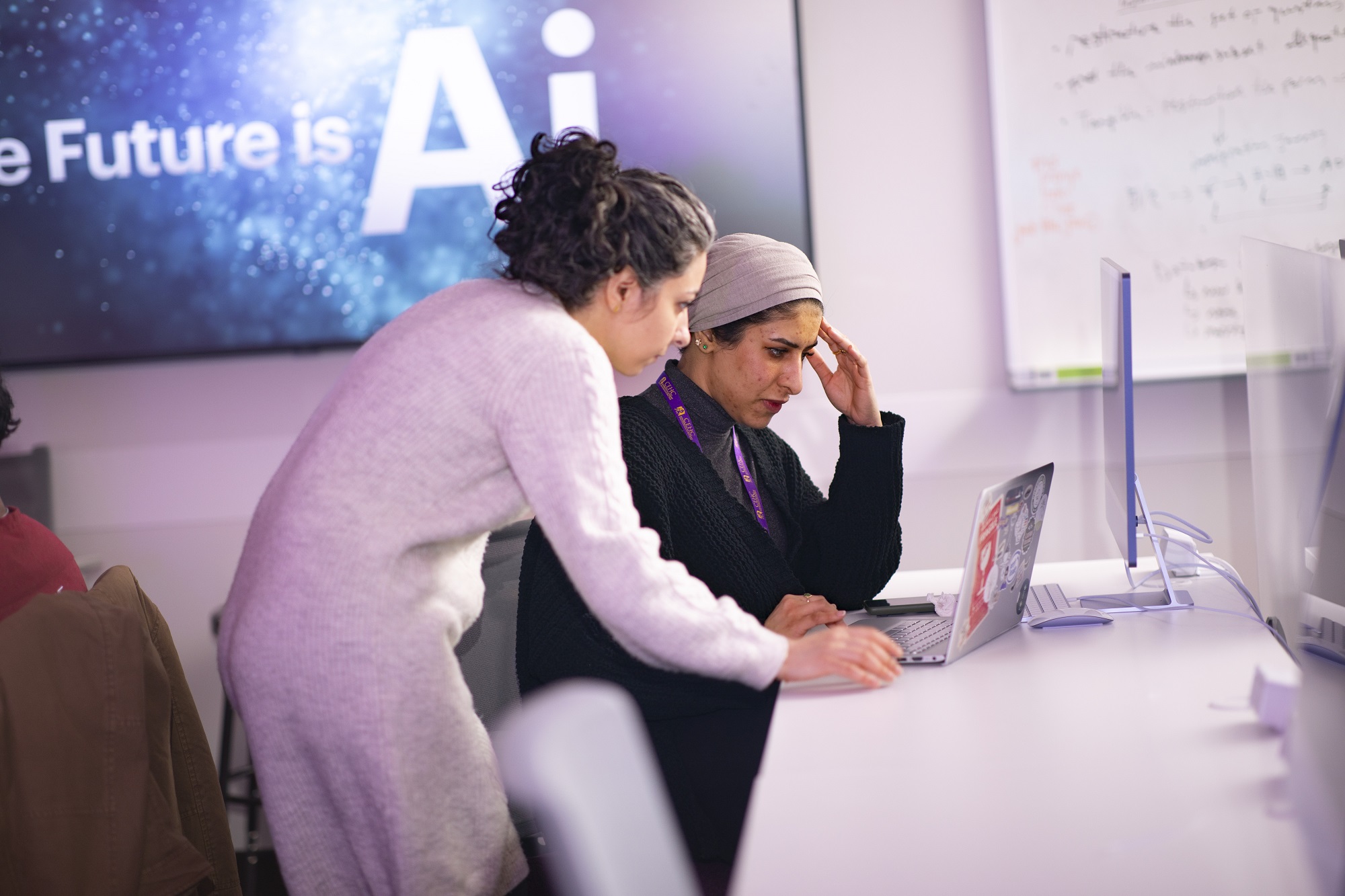
“Twitter was very popular in that region at the time. We’re looking at tweets and prompting a large language model to tell us what emotions it could identify from the message,” Venkatakrishnan said. “Emotion is very subjective. But, if a large language model, like ChatGPT, can quickly identify people who are stressed and in need of assistance, it can help with emergency response.”
Mahsa Goodarzi, also a second-year PhD student in information science, was among the first students to join the AI in Complex Systems Lab. She’s interested in the fashion industry, which has started to use AI technologies for everything from brand imagery to shopping assistants.
Goodarzi is focused on how AI perpetuates the fashion industry’s biases, specifically against people with disabilities.
“When you do not have data that represents everybody and create an algorithm based on that specific data, both the data and algorithm will be biased,” Goodarzi said. “I want to see what I can do to help and make the industry more inclusive.”
Hakan Otal, a first-year PhD student in information science, recently joined the AI in Complex Systems Lab team. His research focuses on IoT (Internet of Things) networks, wearable technologies, network measurements, and federated learning, a decentralized approach to training machine learning models.
“I am thrilled to join the team. My goal is to unlock new possibilities and contribute to groundbreaking advancements in how we interact with and understand technology in our daily lives,” Otal said.
Artificial Intelligence at UAlbany
The launch of Canbaz’s lab comes as UAlbany takes a holistic approach to integrating teaching and learning about AI across its academic and research programs, ensuring every graduate is prepared to live and work in a world radically changed by technology in the coming decades.
Last semester, UAlbany welcomed 18 new faculty who specialize in artificial intelligence to campus. They are the first of 27 new faculty hires that will join the University’s new AI academy this academic year — the largest cluster hire in the University’s history.
Now that the lab is open, Canbaz says he plans to tap into UAlbany’s AI expertise and recruit more student researchers from multiple disciplines.
“One of my primary goals is to prepare our students for future careers. As AI continuously reshapes the job landscape, I envision our lab as a pivotal force in their professional journey. We're not just educating; we're equipping our students with in-depth knowledge and practical experience, ensuring they graduate as game-changers in their fields.”
Students interested in learning more about the AI in Complex Systems Lab are encouraged to visit Canbaz’s research website or email him directly.
Photos by Patrick Dodson





